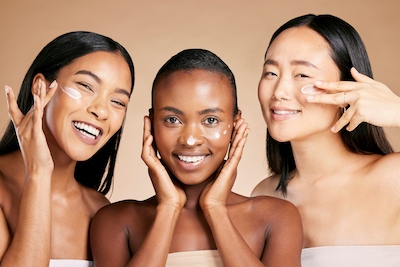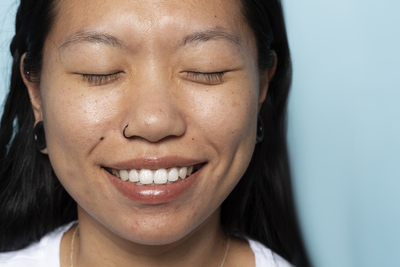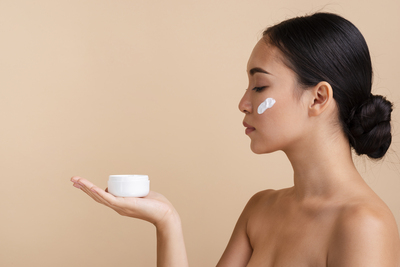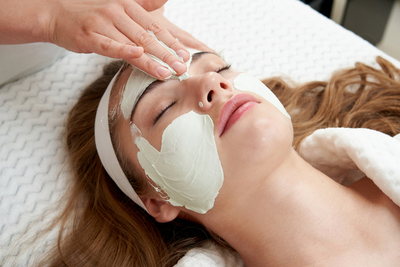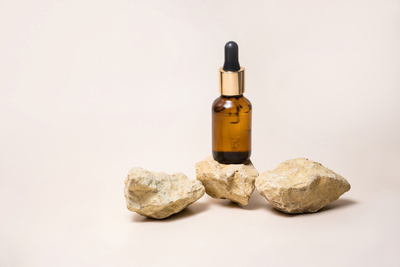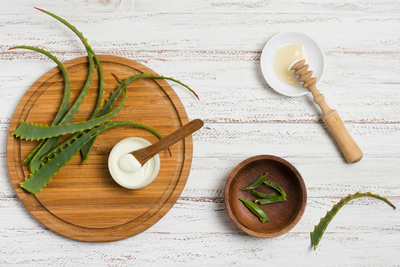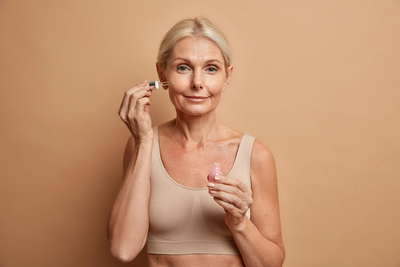Rosacea Causes and Symptoms You Should Know

If your face looks like you've turned red from embarrassment and your skin has blood vessels and pimples that look like acne, then you probably have rosacea. The term itself has Latin roots (rosaceus - rose-like) and reflects the main symptom which is redness.
Basically, rosacea is a disease with a hereditary predisposition. However, other factors can influence it as well. In the guide below, we look at what causes the disease, how to identify it, and what rosacea treatment can improve your skin condition.
Symptoms of Rosacea
Usually, rosacea is accompanied by redness, enlargement of small blood vessels and the appearance of papules and pustules that look like acne. According to statistics, rosacea affects people with fair skin, especially women.
Without proper rosacea care, the disease progresses rather quickly. So you are recommended to consult a dermatologist as soon as you notice the first symptoms:
- Enlarged vessels and increased skin temperature on the rosacea face;
- Pink rash accompanied by redness. The initial pink bumps can turn into blackheads and pustules;
- Redness typically appears in the T-zone, on the back and chest;
- Visible vascular network which looks like red and bluish spots;
- Watery eyes, dryness and redness of the eyes;
- Puffiness and swelling of the face.
Causes of Rosacea
- Ultraviolet. It damages skin with weak capillaries and triggers an inflammatory reaction;
- Heredity, high photosensitivity. For example, white-skinned and fair-haired people are more likely to suffer from rosacea;
- Using irritants and neglecting sunscreen;
- Extreme temperatures: extreme heat or severe cold;
- Diseases of the digestive system (Helicobacter pylori infection in particular), gastritis, colitis, gluten intolerance;
- Immune disorders;
- Problems of the endocrine system.
How to Treat Rosacea?
Fortunately, many methods and medications can help cope with the symptoms of rosacea. However, they should only be used under the supervision of a dermatologist.
First, the specialist will find out the cause of the disease and choose the best rosacea therapy. In some cases, the digestive organs and nervous system require special attention. The doctor will probably prescribe antihistamines and antibiotics. Second, they will help you choose face care for rosacea. Third, only a doctor can offer you hardware procedures that can eliminate spider veins, for example.
Rosacea Skin Care Tips
In addition to consulting a professional, remember about some healthy habits. They are certainly the best treatment for rosacea redness.
- Before going out, use a broad-spectrum sunscreen (SPF 30 or higher). At SkinBuddy, you can choose the product that suits you best, taking the characteristics of your skin into account. In summer, wear a wide-brimmed hat that covers your face;
- Use gentle hypoallergenic rosacea skin care products. Avoid those containing alcohol (ethanol), fragrances, essential oils, rosemary and other harsh ingredients;
- Avoid peelings and scrubs with large, uneven particles. They shouldn't be part of the best rosacea skin care regimen. Also, give up on home massagers: you don’t need to stress your delicate skin again;
- Protect your skin with nourishing and moisturizing creams, especially in cold weather. Cold temperatures and strong winds can dry out your skin - they are basic rosacea triggers;
- Rely on gel-like and moisturizing products for rosacea skin.
Try SkinBuddy to find out what works for your skin, and what doesn’t.
Scan your skincare, avoid pore-clogging or irritating ingredients, and discover smarter product matches. Open the web app or download the mobile app to get started.
or
Check Products OnlineCheck if your skincare suits your skin type, sensitivity, or acne-prone needs at skinbuddy.app and discover better options that match your routine and goals. SkinBuddy makes it easy, fast, and science-backed.
Scan to get started:

Web App (mobile only)

App Store & Google Play
In Conclusion
Every year, new methods of medical treatment for rosacea are being discovered. That’s why the main secret to success is timely consultation with a specialist. Thanks to experienced professionals and compliance with all their recommendations, you can achieve stable long-term remission.
References
- Rosacea: Diagnosis & Treatment. American Academy of Dermatology Association. https://www.aad.org/public/diseases/rosacea/treatment/diagnosis-treat
- How to Manage and Treat Rosacea. WebMD. https://www.webmd.com/skin-problems-and-treatments/understanding-rosacea-basics
- Rosacea. NHS England. https://www.nhs.uk/conditions/rosacea
- Rosacea: Learn More – What are the treatment options for rosacea? National Library of Medicine. https://www.ncbi.nlm.nih.gov/books/NBK279475
- Rosacea. BetterHealth Channel. https://www.betterhealth.vic.gov.au/health/conditionsandtreatments/rosacea
- All About Rosacea: Signs & Symptoms And Treatment. National Rosacea Society. https://www.rosacea.org/patients/all-about-rosacea


